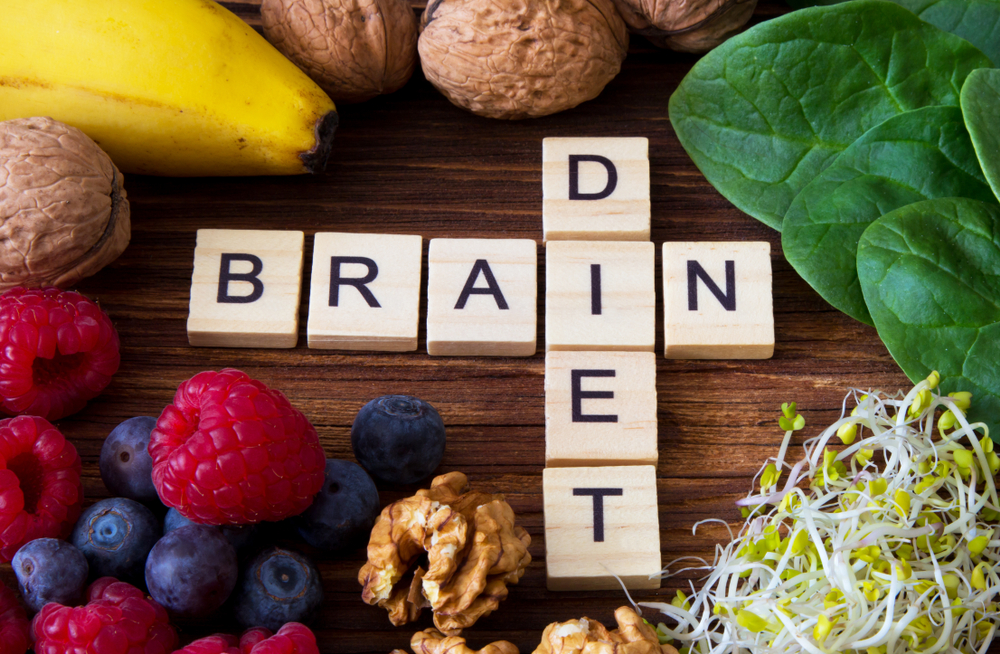We usually think of healthy eating as a way to keep our bodies in shape, but have you ever considered how crucial it is for your mind, too? The food you eat really affects how you feel, both emotionally and mentally. Some foods can really help lift your mood, improve your focus, and even ease stress and anxiety.
Let’s take a closer look at how healthy eating can improve your mental health and what foods you can add to your diet to keep your mind and mood in great shape.
The Connection Between Food and Mental Health
The foods we eat play a big role in our mental health. Studies show that a diet rich in processed foods can increase your chance of developing mental health disorders like depression, anxiety, and ADHD. On the other hand, diets that are packed with whole foods show a lower risk of these conditions.
The nutrients we get from food are super important for the production of neurotransmitters like serotonin and dopamine. These guys are key when it comes to keeping our mood in check. Eating a balanced diet with enough omega-3 fatty acids, vitamins, and minerals can help our body produce these neurotransmitters, which could alleviate feelings of anxiety and depression.
Interestingly, the connection between the gut and the brain is a critical part of this equation. About 95% of our serotonin is produced in the gastrointestinal tract. As such, a healthy gut, maintained by a balanced diet, can positively influence mood and cognitive function.
On the flip side, eating habits that are heavy on refined sugars and processed carbs can lead to spikes and crashes in your blood sugar levels. These fluctuations can lead to mood swings, make us feel irritable, and ramp up anxiety levels. Keeping your blood sugar steady with balanced meals can really help keep your mood more even.
The relationship between food and mood can also go both ways. What we eat can impact our mental health, but at the same time, our emotions can also play a big role in how we eat. Many reach for “comfort foods” when they’re feeling stressed or emotional, and this can sometimes create unhealthy habits and make mood-related problems even worse. Choosing food mindfully and keeping it balanced can really help you break that cycle and boost your mental health.
Key Nutrients for Mental Health
Certain vitamins, minerals, and healthy fats are especially important for maintaining a balanced mood and sharp mind. Let’s take a closer look at some of the key players and what they do to help out:
- Omega-3 Fatty Acids: Healthy fats, like those in fatty fish such as salmon, sardines, and mackerel, as well as chia seeds, walnuts, and flaxseeds, are really important for our brain health. Omega-3s help build brain cells and improve communication between them. Studies show they can improve cognitive function and brain health, plus they could also ease symptoms of depression and anxiety.
- B Vitamins and Folate: Vitamins like B6, B12, and folate play a crucial role in brain function and the production of neurotransmitters like serotonin and dopamine, which regulate mood. Not getting enough of these vitamins has been linked to a higher risk of depression. Eggs, leafy greens, legumes, dairy products, and fortified cereals are all fantastic sources of B vitamins.
- Vitamin D: Known as the “sunshine vitamin,” it’s linked to improved mood and reduced symptoms of depression. It’s also known to promote the growth of new brain cells. You can get Vitamin D from sun exposure, fortified dairy products, fatty fish like salmon, and egg yolks.
- Magnesium: This mineral plays a role in calming the nervous system and keeping stress hormones like cortisol in check. Doing this can help calm the body’s stress response, kind of like putting a “brake” on the nervous system to keep it from getting too fired up when things get stressful. Some great sources of magnesium are spinach, Swiss chard, almonds, cashews, pumpkin seeds, chia seeds, black beans, chickpeas, edamame, tofu, whole grains, avocados, bananas, and even salmon, mackerel, halibut, and dark chocolate (yep, chocolate!).
- Zinc: Zinc plays a role in how the brain handles stress and can help keep your mood in check. You can find it in foods like meat, shellfish, legumes, seeds, nuts, and whole grains.
- Iron: Iron plays a crucial role in getting oxygen to the brain. Not getting enough iron can contribute to fatigue and brain fog, which can impact how you feel and think. Some great sources of iron are red meat, poultry, fish, lentils, beans, and fortified cereals.
- Antioxidants: Vitamins C and E, along with other antioxidants, help keep the brain safe from oxidative stress and inflammation, which can affect mental health. Berries, oranges, grapefruits, kiwi, guava, papaya, and veggies like bell peppers, kale, and broccoli are all fantastic sources.
- Tryptophan: This essential amino acid helps your body produce serotonin, which is essential for mood regulation. Tryptophan also has natural calming effects that can really help improve your sleep quality. Foods like turkey, chicken, salmon, tuna, lobster, cheese, milk, eggs, pumpkin seeds, almonds, chickpeas, lentils, oats, and quinoa are all great sources of tryptophan.
- Fermented Foods: Your gut and brain are closely connected, and fermented foods containing probiotics play a key role in keeping your gut microbiome healthy. Fermented foods like yogurt, kimchi, sauerkraut, and kefir can promote gut health, which in turn supports your mental well-being.
Adding these essential nutrients to your daily meals can really help lift your mood, ease stress, and keep your mind sharp. If you’re feeling a bit lost on where to start, why not pick one nutrient-packed food for each meal? You might be surprised at how much your mental health can benefit over time!
Foods to Avoid for Better Mental Health
What you leave off your plate can be just as important as what you put on it when it comes to mental health. Certain foods can negatively affect your mood, energy levels, and brain function. By reducing or avoiding these foods, you can create a healthy diet that supports your mental well-being. Here are some common culprits to watch out for:
- Processed Foods: Packaged snacks, instant noodles, and frozen meals are usually packed with unhealthy fats, sodium, and additives. These can lead to inflammation in both the body and brain, which could play a role in feelings of anxiety or depression. It’s a good idea to cut back on those and go for whole, fresh foods instead.
- Sugary Foods and Refined Carbohydrates: Sugary drinks and snacks, pastries, and white bread can cause quick spikes in your blood sugar, followed by crashes that leave you feeling tired, irritable, or a bit moody. Too much sugar in your diet can also increase the risk of depression. Swap out sugary treats for naturally sweet choices like fresh fruit, and trade refined carbs for whole-grain foods like brown rice, quinoa, and whole-grain bread instead.
- Trans Fats: Trans fats are often found in fried foods, baked goods, and margarine, and they can lead to inflammation and have a negative impact on brain health. Eating trans fats regularly has been connected to an increased risk of depression. Go for healthy fats found in avocados, nuts, and olive oil instead.
- Alcohol: Even though a glass of wine can feel like a nice way to unwind, it’s important to remember that alcohol is a depressant. It can mess with your sleep, leave you feeling dehydrated, and impact how your brain manages your mood. Drinking too much can also lead to a higher chance of feeling anxious and depressed. If you choose to drink, just remember to keep it moderate.
- Artificial Sweeteners: Artificial sweeteners, like aspartame, are often found in diet sodas and sugar-free products. It can actually mess with how your body makes neurotransmitters, like serotonin, which helps regulate mood. If you’re on the hunt for a sugar substitute, consider giving natural sweeteners like honey or stevia a go; just remember to use them in moderation.
- Too Much Caffeine: Caffeine, found in coffee, tea, and energy drinks, can give you a temporary energy boost. But too much caffeine can make you feel more anxious and restless and can even mess with your sleep, which isn’t great for your mental health. Try to cut back on caffeine, especially in the afternoon and evening, so it doesn’t mess with your mood or sleep.
- Foods High in Sodium: Canned foods and salty snacks are often high in sodium, which can lead to water retention, dehydration, and even cognitive fog. It’s something to keep in mind! A diet high in sodium may also contribute to high blood pressure, which can negatively affect overall physical health and well-being. Try to choose fresh, minimally processed foods whenever you can.
By being mindful of these foods and slowly cutting them off your diet, you can take a proactive step toward improving your mental health.
How Hydration Affects Mental Health
Staying hydrated is not just important for your physical health—it also plays a big role in your mental well-being. Your brain is made up of around 73% to 78% water, so even mild dehydration can affect how well it works. When you’re not properly hydrated, you can experience:
- Cognitive Impairment: Even slight dehydration (a loss of as little as 2% of body weight) can make it hard to think clearly and make decisions. This can include problems with memory and attention.
- Mood Changes: Not drinking enough water can make you feel anxious, irritable, and depressed. When compared to people who stay properly hydrated, those who drink less water are more likely to show signs of depression.
- Increased Stress Levels: Dehydration can raise cortisol levels, which may exacerbate feelings of anxiety and stress. This creates a self-perpetuating cycle where dehydration leads to increased stress, which in turn can lead to further dehydration.
- Fatigue and Energy Levels: Not drinking enough water can make you feel tired and low on energy, which can really impact your motivation and how you feel mentally overall. Feeling tired in the afternoon and a general sense of lethargy is pretty normal when your body isn’t getting enough water.
- Brain Function: Water plays a crucial role in making hormones and neurotransmitters in the brain. Dehydration can impair serotonin production and negatively affect brain energy levels, further compromising cognitive function.
- Physical Symptoms: When you’re dehydrated, you might experience physical symptoms like headaches, dizziness, and a dry mouth. These can really add to feelings of discomfort and irritability, which isn’t great for your mental health.
Staying hydrated is an easy yet effective way to boost your mental well-being. So, try to drink about 2.5 liters, which is roughly 10.5 cups, each day for optimal mental health benefits.



